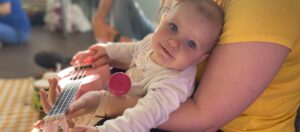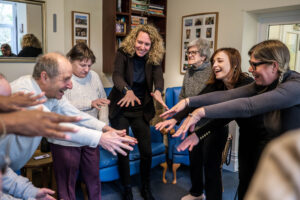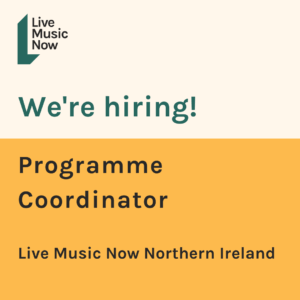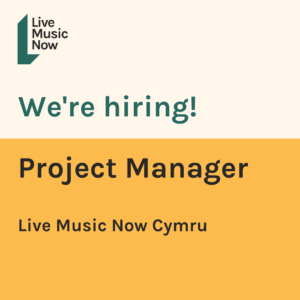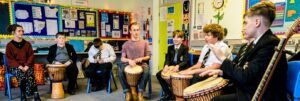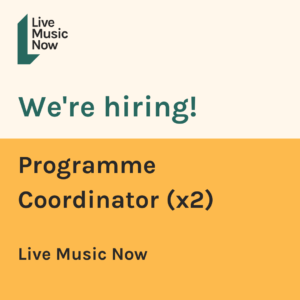Live Music Now is collaborating with the East Kent Neurorehabilitation Unit at East Kent Hospitals University NHS Foundation Trust and University of Kent's School of Psychology in a pilot study looking at the impact of live music sessions on recovery from brain injury.
Legendary violinist Yehudi Menuhin founded Live Music Now after witnessing first-hand the benefits of live music on war wounded in veterans hospitals.
'We are confident that the work of Live Music Now musicians makes a positive difference to the lives of the people they reach, but we are delighted to be working alongside Dr Sakel and Dr Wilkinson to gather evidence of this in a clinical setting' Douglas Noble, Strategic Director of Wellbeing, Live Music Now
The concerts take place on Saturdays and Sundays in the Day Room of Harvey Ward at Kent & Canterbury Hospital and feature twenty one outstanding, specially trained musicians performing a wide range of genres. (Click here for a complete listing of events.) The patients' conditions range from severe brain injury from trauma, stroke, tumours and MS.
The study is an offshoot of long-standing research partnership Dr Mohamed Sakel (Director/Consultant Neuro-Rehabilitation, EKHUFT) and Dr David Wilkinson (School of Psychology, University of Kent) who have completed several studies together on improving care of neurorehab patients. Two student researchers (Anna Biller and Katie Richards) have designed and are administering the measurement system of the programme.
"The music project at the Kent & Canterbury holds particular promise because, unlike similar projects conducted elsewhere, it is founded on a rigorous methodology", said Dr. Wilkinson
The innovative service trial will scientifically and objectively measure the sense of well-being, mood and quality of life of patients, as well as relatives and staff, before and after the live music sessions, and determine whether this links to an improvement of patients' disability. The results of this pilot may pave the way for further analysis using sophisticated imaging techniques.
Dr Sakel said, 'I'm optimistic that these innovative music sessions will enhance the experience of my patients & their relatives whilst they are going through a difficult journey. It's impressive the extra work the staff is doing with enthusiasm. We intuitively believe music may help in the healing of the injured brain. We are grateful to Live Music Now and to Prof Stuart Field for introducing us to their work.'
This concert series is supported in part by Golsoncott Foundation, Promenaders' Musical Charities and an anonymous donor. Additional support provided in kind by Kent & Canterbury Hospital's staff of Neurorehabilitation.
